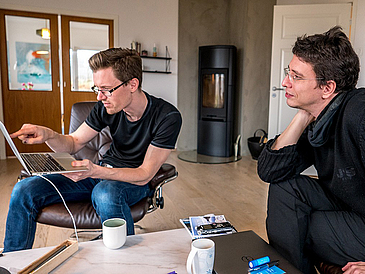The educational scientist from Bremen travelled 6295 kilometers through Norway in two weeks. He held 13 extensive interviews with employees, cooperation partners of the platform, but also with critics. The latter mainly stem from the educational book publishing houses. Since 2006, Norway has been testing and experiencing the Nasjonal Digital Læringsarena (NDLA), the national platform for freely accessible educational materials.
What Are Open Education Resources?
Educational resources of any type that are in the public domain or have been made accessible with a free license are collected within the NDLA platform. The special feature of these open materials is that everyone who wishes to do so can copy, use, change and distribute them legally and for free. Amended materials can thus be shared legally with other teachers. Open education resources encompass teaching books, teaching plans, lesson concepts, scripts, exercises, tests, projects and audio, video and animated formats. “Over a period of 12 years, Norway has been successful in producing resources for 80 subjects for secondary level II, which are available without a login or download. This enables lifelong learning that is independent of the chosen school and teacher”, stated Professor Frank J. Müller positively.
What Significance Do these Resources Hold for Inclusion?
In the Bremen scientist’s approach, inclusion goes beyond the dimensions of restrictions and takes the diverse cultures, linguistic and social background and also gender questions and sexual orientation into account. The advantage of open educational resources is reportedly that teachers have the opportunity, thanks to the free license, to adapt the materials to the needs of the pupils and to then offer them to others. “This is an important requirement for dealing with heterogeneity in lessons”, states Professor Müller. He found in his study that: “Flexibility is a central advantage of digital, open educational materials in contrast to the traditional school books or prefabricated apps”.
Summary: “Joint Action by the States is Sensible”
Due to the free licenses of the software and contents of the Norwegian NDLA platform, other countries do not need to begin at square one but only need to make adaptions based upon their needs, says the scientist. As the worldwide educational institutes are facing comparable challenges, a cooperative development of the contents and structures could help in making available resources as useful as possible for the pupils. Professor J. Müller stressed that: “It has become clear that joint action by several states appears to be sensible”.
Contact:
Prof. Dr. Frank J. Müller
Junior Professor for Inclusive Education
Faculty of Pedagogy and Educational Sciences
University of Bremen
Phone: 0151 560 32440
Email: frankj.mueller@uni-bremen.de

